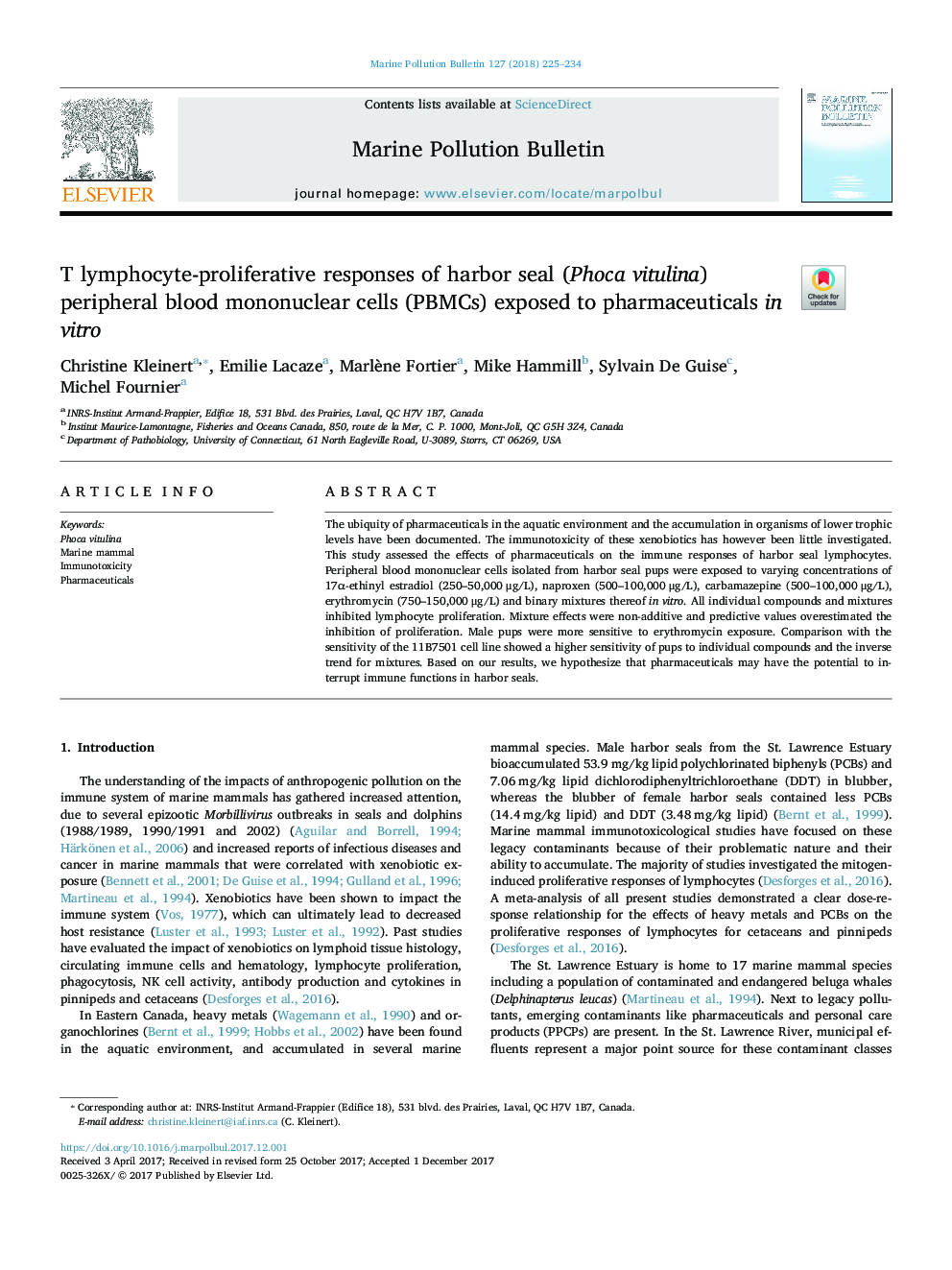| Article ID | Journal | Published Year | Pages | File Type |
|---|---|---|---|---|
| 8871644 | Marine Pollution Bulletin | 2018 | 10 Pages |
Abstract
The ubiquity of pharmaceuticals in the aquatic environment and the accumulation in organisms of lower trophic levels have been documented. The immunotoxicity of these xenobiotics has however been little investigated. This study assessed the effects of pharmaceuticals on the immune responses of harbor seal lymphocytes. Peripheral blood mononuclear cells isolated from harbor seal pups were exposed to varying concentrations of 17α-ethinyl estradiol (250-50,000 μg/L), naproxen (500-100,000 μg/L), carbamazepine (500-100,000 μg/L), erythromycin (750-150,000 μg/L) and binary mixtures thereof in vitro. All individual compounds and mixtures inhibited lymphocyte proliferation. Mixture effects were non-additive and predictive values overestimated the inhibition of proliferation. Male pups were more sensitive to erythromycin exposure. Comparison with the sensitivity of the 11B7501 cell line showed a higher sensitivity of pups to individual compounds and the inverse trend for mixtures. Based on our results, we hypothesize that pharmaceuticals may have the potential to interrupt immune functions in harbor seals.
Related Topics
Physical Sciences and Engineering
Earth and Planetary Sciences
Oceanography
Authors
Christine Kleinert, Emilie Lacaze, Marlène Fortier, Mike Hammill, Sylvain De Guise, Michel Fournier,
